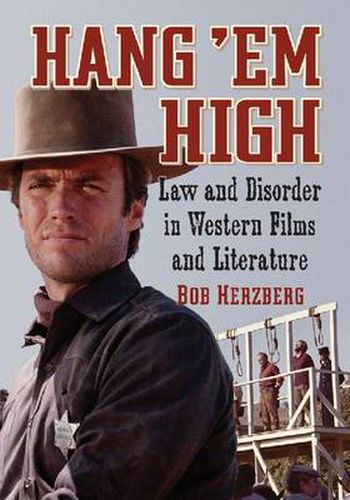Readings Newsletter
Become a Readings Member to make your shopping experience even easier.
Sign in or sign up for free!
You’re not far away from qualifying for FREE standard shipping within Australia
You’ve qualified for FREE standard shipping within Australia
The cart is loading…






This title is printed to order. This book may have been self-published. If so, we cannot guarantee the quality of the content. In the main most books will have gone through the editing process however some may not. We therefore suggest that you be aware of this before ordering this book. If in doubt check either the author or publisher’s details as we are unable to accept any returns unless they are faulty. Please contact us if you have any questions.
For more than a century the Western film has proven to be an enduring genre. At the dawn of the 20th century, in the same years that The Great Train Robbery begat a film genre, Owen Wister wrote ,em>The Virginian, which began a new literary genre. From the beginning, both literature and film would usually perpetuate the myth of the Old West as a place where justice always triumphed and all concerned (except the villains) pursued the Law. The facts, however, reflect abuses of due process: lynch mobs and hired gunslingers rather than lawmen regularly pursued lawbreakers; vengeance rather than justice was often employed; and even in courts of law justice didn’t always prevail. Some films and novels bucked this trend, however.
This book discusses the many Western films as well as the novels they are based on, that illustrate distortions of the law in the Old West and the many ways, most of them marked by vengeance, in which its characters pursued justice. The author has used correspondence from studio files, letters from the Production Code office, newspaper and magazine reviews, passages from the novels to analyse not only the filmmakers’ intentions but also how the films, contrary to reality, became a showcase of America as it promoted the principles of due process, trial by jury, and innocence before proven guilty.
$9.00 standard shipping within Australia
FREE standard shipping within Australia for orders over $100.00
Express & International shipping calculated at checkout
This title is printed to order. This book may have been self-published. If so, we cannot guarantee the quality of the content. In the main most books will have gone through the editing process however some may not. We therefore suggest that you be aware of this before ordering this book. If in doubt check either the author or publisher’s details as we are unable to accept any returns unless they are faulty. Please contact us if you have any questions.
For more than a century the Western film has proven to be an enduring genre. At the dawn of the 20th century, in the same years that The Great Train Robbery begat a film genre, Owen Wister wrote ,em>The Virginian, which began a new literary genre. From the beginning, both literature and film would usually perpetuate the myth of the Old West as a place where justice always triumphed and all concerned (except the villains) pursued the Law. The facts, however, reflect abuses of due process: lynch mobs and hired gunslingers rather than lawmen regularly pursued lawbreakers; vengeance rather than justice was often employed; and even in courts of law justice didn’t always prevail. Some films and novels bucked this trend, however.
This book discusses the many Western films as well as the novels they are based on, that illustrate distortions of the law in the Old West and the many ways, most of them marked by vengeance, in which its characters pursued justice. The author has used correspondence from studio files, letters from the Production Code office, newspaper and magazine reviews, passages from the novels to analyse not only the filmmakers’ intentions but also how the films, contrary to reality, became a showcase of America as it promoted the principles of due process, trial by jury, and innocence before proven guilty.